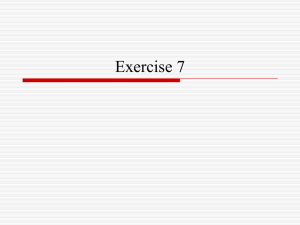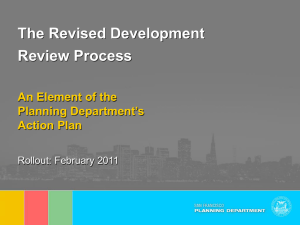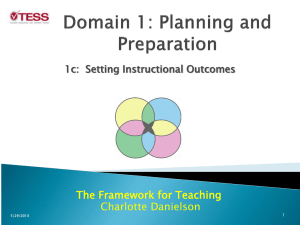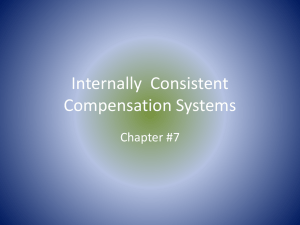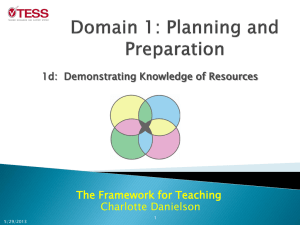Logic
advertisement
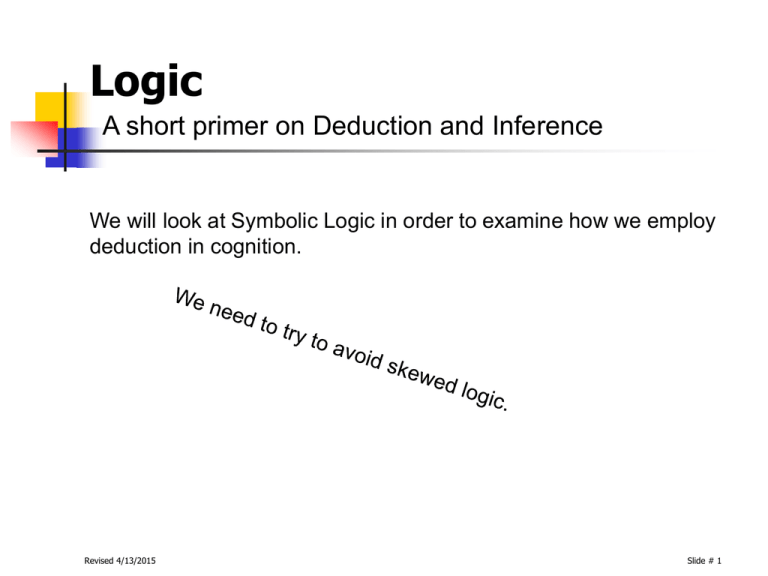
Logic A short primer on Deduction and Inference We will look at Symbolic Logic in order to examine how we employ deduction in cognition. Revised 4/13/2015 Slide # 1 Logic What is Logic? • Logic • For CS/Math Types: from Factasia • A formal language, given a precisely defined syntax and semantics, becomes a logic when rules for correct reasoning in the language are formally described • For Philosophers: from Factasia • Logic is the study of necessary truths and of formal systems for deriving them. • The study by which arguments are classified into good ones and bad ones. (Irving Copi) Revised 4/13/2015 Slide # 2 Logical Systems • There are actually many logical systems • The one we will examine in class is called RS1 (I think…it is a simple propositional calculus, in any event.) • It is comprised of • Statements • "Roses are red“ • "Republicans are Conservatives“ • “P” • Operators • And • Or • not Revised 4/13/2015 Some Rules of Inference Slide # 3 Logic Compound Statements • Conjunctions (Conjunction Junction) • Two simple statements may be connected with a conjunction • The conjunction “and” • The disjunction “or” Revised 4/13/2015 Slide # 4 The conjunction operator “and” Symbolized by “•” Revised 4/13/2015 "Roses are Red and Violets are blue.“ "Republicans are conservative and Democrats are liberal.“ P • Q (P and Q) Slide # 5 The disjunction operator “or” Symbolized by “v” Revised 4/13/2015 "Republicans are conservative or Republicans are moderate PvQ Slide # 6 Negation Not Symbolized by ~ Revised 4/13/2015 That is not a rose Bob is not a Republican ~A Slide # 7 Operators These may be used to symbolize complex statements The other symbol of value is Revised 4/13/2015 Equivalence () This is not quite the same as “equal to”. Slide # 8 Truth Tables Statements have “truth value” For example, take the statement P•Q: P T T F F Revised 4/13/2015 This statement is true only if P and Q are both true. Q P•Q T T F F T F F F Slide # 9 Truth Tables (cont) Hence “Republicans are conservative and Democrats are liberal.” is true only if both parts are true. On the other hand, take the statement PvQ: P T T F F Revised 4/13/2015 This statement is true only if either P or Q are true, but not both. (Called the “exclusive or”) Q PvQ T F F T T T F F Slide # 10 The Inclusive ‘or’ Note that ‘or’ can be interpreted differently. Both parts of the disjunction may be true in the “inclusive or”. This statement is true if either or both P or Q are true. P T T F F Revised 4/13/2015 Q T F T F PvQ T T T F Slide # 11 The Exclusive ‘or’ With the exclusive or, of p is true, than q cannot be. Only one part of the disjunction may be true in the “exclusive or”. This statement is true if either P is true or Q is true, but not both. P T T F F Revised 4/13/2015 Q T F T F PvQ F T T F Slide # 12 The Conditional The Conditional (antecedent) (consequent) It is also called the hypothetical, or implication. This translates to: if a then b A implies B If A then B A causes B Symbolized by A B Revised 4/13/2015 Slide # 13 The Implication We use the conditional or implication a great deal. It is the core statement of the scientific law, and hence the hypothesis. Revised 4/13/2015 Slide # 14 Equivalency of the Implication Note that the Implication is actually equivalent to a compound statement of the simpler operators. ~p v q Please note that the implication has a broader interpretation than common English would suggest Revised 4/13/2015 Slide # 15 Rules of Inference In order to use these logical components, we have constructed “rules of Inference” These rules are essentially “how we think.” Revised 4/13/2015 Slide # 16 Modus Ponens AB A B This is the classic rule of inference for scientific explanation. Revised 4/13/2015 Slide # 17 Modus Tollens AB ~B ~A This reflects the idea of rejecting the theory when the consequent is not observed as expected. Revised 4/13/2015 Slide # 18 Disjunctive Syllogism Av B ~A B Revised 4/13/2015 Slide # 19 Hypothetical Syllogism AB B C A C Classic reasoning Revised 4/13/2015 All men are mortal. Socrates is a man. Therefore Socrates is mortal. Slide # 20 Complex propositions Take for instance - US If Weapons USAttack If Weapons ~Insp If ~Insp Weapons If ~Insp USAttack Revised 4/13/2015 Take for instance - Iraq If Insp ~Weapons If Weapons ~USAttack If Insp USAttack Slide # 21 Logical Systems Logic gives us power in our reasoning when we build complex sets of interrelated statements. When we can apply the rules of inference to these statements to derive new propositions, we have a more powerful theory. Revised 4/13/2015 Slide # 22 Tautologies Note that p v ~p must be true “Roses are red or roses are not red.” must be true. A statement which must be true is called a tautology. A set of statements which, if taken together, must be true is also called a tautology (or tautologous). Note that this is not a criticism. Revised 4/13/2015 Slide # 23 Tautologous systems Systems in which all propositions are by definition true, are tautologous. Balance of Power Why do wars occur? Because there is a change in the balance of power. How do you know that power is out of balance? A war will occur. Note that this is what we typically call circular reasoning. The problem isn’t the circularity, it is the lack of utility. Revised 4/13/2015 Slide # 24 Useful Tautologies Can a logical system in which all propositions formulated within be true have any utility? Try Geometry Calculus Classical Mechanics But not arithmetic Revised 4/13/2015 Kurt Gödel & his Incompleteness Theorem Slide # 25 The Liars Paradox The Paper Paradox (a variant of the Liar’s paradox) Epimenedes the Cretan says that all Cretans are liars.“ < The next statement is true. < The previous statement is false. For further info Russell’s Paradox The paradox arises within naive set theory by considering the set of all sets that are not members of themselves. Such a set appears to be a member of itself if and only if it is not a member of itself. Hence the paradox Revised 4/13/2015 Slide # 26 Grelling’s Paradox Homological – a word which describes itself Heterological – a word which does not describe itself Short is a short word English is an English word German is not a German words Long is not a long word Is heterological heterological? Revised 4/13/2015 Slide # 27 Paradox of voting It is possible for voting preferences to result in elections in which a less preferred candidate wins over a preferred one. See Paradox of Voting Suppose you have 3 individuals and candidates A, B and C Individual 1: A > B > C Individual 2: C > A > B Individual 3: B > C > A Now if these individuals were asked to make a group choice (majority vote) between A and B, they would chose A; If asked to make a group choice between B and C, they would chose B. If asked to make a group choice between C and A, they would chose C. So for the group A is preferred to B, B is preferred to C, but C is preferred to A! This is not transitive which certainly goes against what we would logically expect. Revised 4/13/2015 Slide # 28


